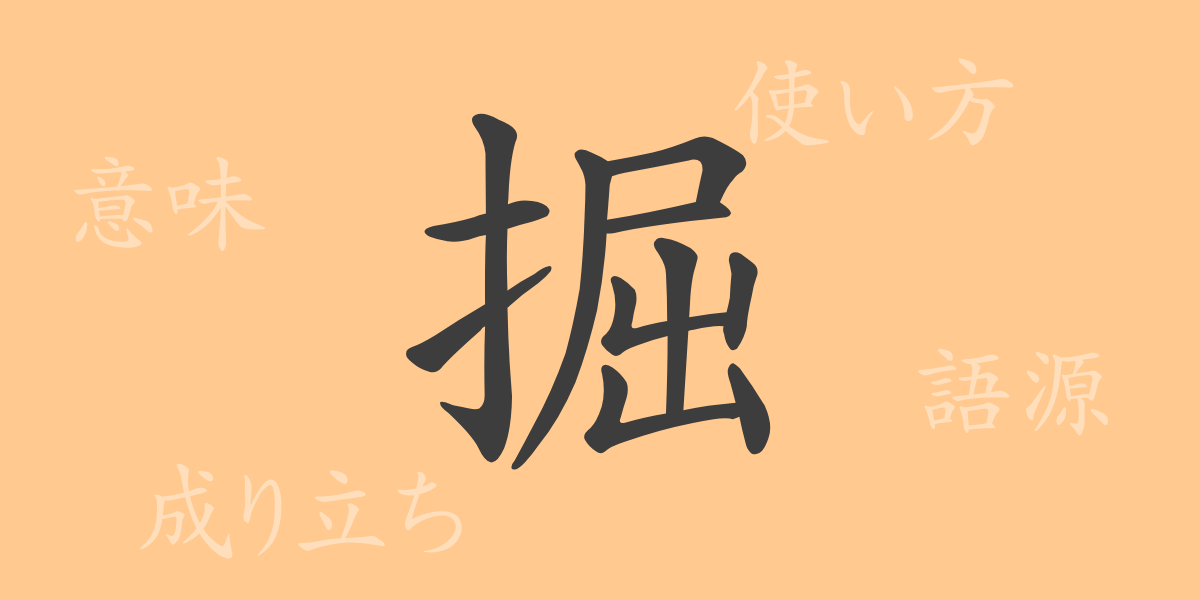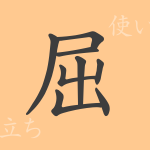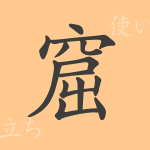The beauty of the Japanese language is also embodied in its characters. One of the frequently used kanji, “掘(ほる),” symbolizes the strength and importance of the written character in our daily lives. In this article, we delve deeply into the world of “掘(ほる),” exploring its origins, meanings, uses, readings, and idiomatic expressions. Join us on a journey that offers a glimpse into Japanese culture.
Origin of 掘(ほる) (Etymology)
The kanji “掘(ほる)” was used in ancient China to denote the act of digging soil. This character is composed of “手(て),” representing a hand, and “屈(くつ),” meaning to bend. Thus, “掘(ほる)” symbolizes the act of bending the soil with one’s hand, essentially representing the act of digging. Over time, this kanji was transmitted to Japan, where it has been used in various cultural contexts.
Meaning and Usage of 掘(ほる)
The primary meaning of “掘(ほる)” is to dig the ground, but it is also used metaphorically. For example, it can mean to delve into information or to uncover a topic, such as in “to dig deeper into a subject” or “to unearth a discussion.” Commonly used as a verb, it often appears in phrases like “穴を掘る(あなをほる)” (to dig a hole) or “井戸を掘る(いどをほる)” (to dig a well).
Readings, Stroke Count, and Radical of 掘(ほる)
The kanji “掘(ほる)” has several readings in Japanese.
- Readings: On’yomi (Chinese reading) – “コツ(こつ)”; Kun’yomi (Japanese reading) – “ほる(ほる)”
- Stroke count: 11 strokes
- Radical: The radical is “手(てへん)” which signifies a hand
Idioms, Phrases, and Proverbs Using 掘(ほる)
There are many idioms, phrases, and proverbs that include “掘(ほる),” each reflecting the rich meaning of this kanji. Here are some examples:
- 掘削(こっさく): To dig into the ground. Used in contexts like construction or mining.
- 掘り出し物(ほりだしもの): A valuable item found by chance. It can also refer to the found valuable item itself.
- 掘り返す(ほりかえす): To bring up past events again.
- 金を掘る(かねをほる): To strike it rich or to earn a large amount of money.
- 掘りごたつ(ほりごたつ): A type of low table over a hole in the floor, used in traditional Japanese homes.
These expressions demonstrate the rich meanings conveyed by the character “掘(ほる)” in Japanese.
Conclusion on 掘(ほる)
The kanji “掘(ほる)” encompasses a wide range of meanings and uses beyond simply digging. Its usage in Japanese is closely related to cultural backgrounds and people’s lives, showcasing the depth of the language and the expressive power of kanji. Through this article, we hope you can appreciate the unique worldview embodied in “掘(ほる)” and its influence on the Japanese language.

























